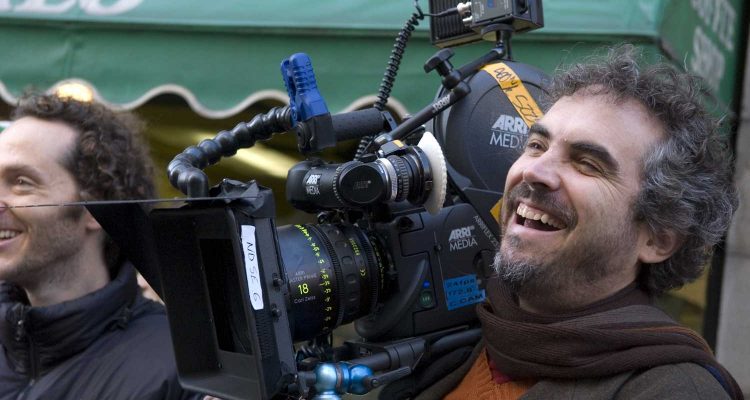On “Great Expectations”
Cuarón: “Do we have to talk about ‘Great Expectations’? If we must, let’s go for it.”
Simon: “It’s interesting that it takes place in the modern world. How did you decide to change the time and world of this book?”
Cuarón: “That’s part of the problem: I didn’t accomplish it. It was a project that was offered and I allowed myself to be seduced for the wrong reasons. I was at a point when I was running out of money. I was feeling insecure and was convinced by the studios to do it. I said no three times to ‘Great Expectations,’ but I thought I could compensate with visuals. Never. When there is no concept, no soul in the script, you can’t compensate with anything.”
When the sequence from “Great Expectations” was shown, which was a technically marvelous tracking shot following Ethan Hawke, Simon praised its brilliance.
Cuaron: “That’s all Chivo! I wish that was the whole film! I look at it as an experience, and I feel embarrassed about it, but I’m still grateful for this film. Without it, I wouldn’t have done my next film.”

On “Y Tu Mamá También”:
“Even before my brother Carlos and I wrote the script, we knew that it will be about this search for a mythical beach. This root started forming the screenplay, and the social context started to inform the film and the characters. The place where it takes place is 45 minutes from the capital of Oaxaca, constantly under siege from the authoritarian government, and part of the idea was to make this film as much of a coming-of-age for the characters but also as a coming-of-age of a country.”
“With Chivo again, we started filling it with limitations: no dollies, no cranes, handheld, wide angles, no other lenses. To honor the moment, but also in which to create the film language and experience where characters are as important as context, and one informs the other.”
“Everything had to deal with death, so it all had to be tied into thematics, so we wanted to involve old people.”
Cuarón went on to explain how he struggled to end this film, and that it was none other than del Toro who helped him finish it.
“Then Guillermo read the script and told me: ‘These guys have to kiss each other.’ ”
 On “Harry Potter And The Prisoner Of Azkaban”:
On “Harry Potter And The Prisoner Of Azkaban”:
“I was trying to put something else together at the time, and then the offer came. J.K. Rowling liked ‘A Little Princess’ and she approved of me doing the Harry Potter film. My friends made fun of me for doing a Harry Potter, and I actually joined in the joke because I had no idea about Harry Potter. I saw the first one and I wasn’t impressed.”
“But then I talked to Guillermo and he asked me so many times, excuse the language: ‘Have you read the books? You fucking arrogant bastard, go right now and buy the fucking books!’ ”
“Guillermo helped me understand that there are social and contemporary references in there, so I approached everything in a realistic way. For example, the werewolf is the guy who ultimately has an addiction. With the actor, I approached him like an addict.”
 On “Children Of Men”:
On “Children Of Men”:
“When I started writing this, it was Oct. 2001, and [the] reason was because 9/11 happened. I became very intrigued about how this new century was going to shape up, and that’s how this material came to me. I didn’t read the novel, I was never interested in doing a sci-fi movie, and in my opinion it’s not a sci-fi but definitely a dystopian film.”
“When I was doing ‘Harry Potter,’ it was so long, and you’re working with children, and it’s not an intense schedule like it is with a smaller movie. This gave me time to do in-depth research for what is shaping this century.”
Check out the rest of our coverage from the 2017 Cannes Film Festival by clicking here.

